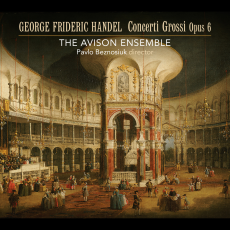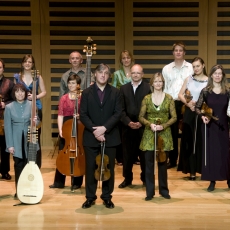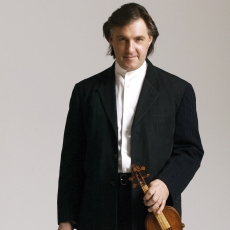The Avsion Ensemble - Handel: Concerti Grossi Opus 6 - Gramophone
Handel's inventive Twelve Grand Concertos (written in 1739) contain an amazing variety of compositional techniques, notwithstanding their strict orchestral parameters of only strings and continuo. Known as Op? 6 since its second edition published in 1741, a good acquaintance with these concerti grossi is vital for anyone wishing to obtain a comprehensive appreciation of Handel's genius - and there are a lot of excellent dissimilar versions to savour. The Newcastle-based Avison Ensemble, under the experienced direction of violinist Pavlo Beznosiuk, ranks alongside the best for musicianship, taste and style. Simon Fleming's booklet-note is a friendly introduction for the novice, although some "facts" might raise a few eyebrows (such as the reiteration of the cloying myth that "the success of John Gay's The Beggar's Opera in 1728...sounded the death bell for sung dramatic works in Italian").
The Avison Ensemble is constituted on a smaller scale than Handel's orchestra would have been, especially in its lower instruments; also there are no bassoons or lute in the continuo group, and only one harpsichord instead of Handel's usual two. This is no different to other "historically informed" recordings of Op?6, and need not be considered an obstacle for enjoyment, even if I hope that one day a modern-Baroque orchestra will strive for the exact sonorities Handel would have envisaged. The optional oboe parts provided by Handel for a few of the concertos are omitted reasonably here.
Beznosiuk is an excellent judge of textures and tempi, and his leadership of the concertino group (also including fellow fiddler Caroline Balding and cellist Richard Tunnicliffe) is authoritative and nuanced. Softly balanced cadences throughout the set are highly effective, and in fast music the interplay between concertino and ripienists is impeccable. Details that I had barely noticed hitherto during the gentle Andante larghetto of No? 2 hint at French ballet music, and the pastoral drone and shepherd-pipe fiddles in the Polonaise of No? 3 are performed with charming intimacy. The Musette in No?6 has elegance in the soft French dance sections that feature lovely hushed tuttis, and unforced agility in the animated middle section. The gutsier forthright music is played crisply and sweetly: the declamatory opening Larghetto e staccato of No ?5 leads into its ensuing Allegro in a more measured fashion than some zippier and brasher interpretations, but Beznosiuk maximises the clarity of small gestures in the music, and such extensive care reaps its own kind of rewards.
The music-making rarely veers towards becoming precious: phrases in the opening Largo of No? 7 persistently taper off and diminish the lyrical pull of Handel's writing, and, in the same concerto, the exclusion of harpsichord in favour of a barely audible organ seems odd considering the trouble Handel took over supplying detailed figured bass; the reduced vivacity also stifles the wittiness of the concluding Hornpipe (admittedly the organ continuo works much better in the broody opening Largo of No? 9). The concluding Gigue of No? 9 is controlled and deliberate, where one might have hoped for swagger and panache. However, in the Tenth Concerto, the introspective melancholy of the Lento and the sudden mood-swings of the penultimate Allegro are impressive. No?11 has exuberance in its opening (Andante larghetto, e staccato), and its finale is thrillingly fleet-footed. I suspect that the Avison Ensemble's set shall remain rewarding long after the novelties of more precocious approaches have faded.


